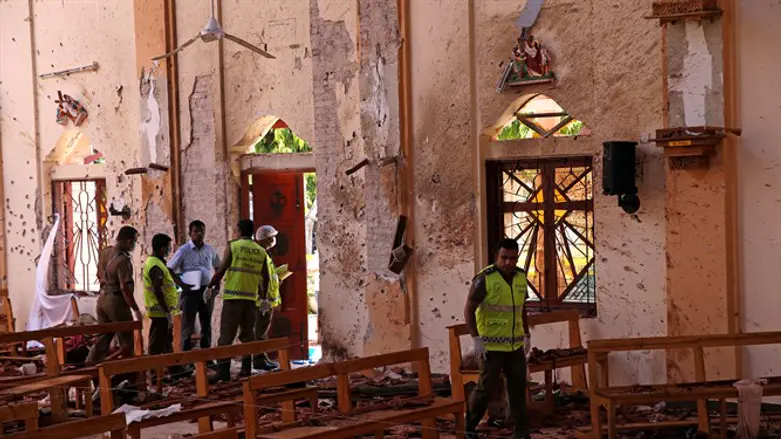
Authorities in the island nation of Sri Lanka suspect a hitherto little-known Sri Lankan Islamist group for a string of deadly suicide bombing attacks against churches and hotels on Easter that killed more than 300 people and left hundreds more wounded.
While no one has claimed responsibility for the bombing attacks across Sri Lanka Sunday, investigators are focusing their attention on a radical Islamic group.
Police say there had been warnings 10 days beforehand that the organization, National Thowheeth Jama’ath (NTJ), might attack churches in Sri Lanka. On April 11th, police chief Pujuth Jayasundara sent out a memo to senior officers warning of possible bombing attacks by the NTJ against “prominent churches”.
Little is known of the NTJ, which in the past has vandalized Buddhist statues. According to the New York Times, the group’s secretary, Abdul Razik, was arrested in 2016 for inciting racism.
Rajitha Senaratne, a spokesman for the Sri Lankan government, said that NTJ was believed to be directly responsible for the attacks, but added that the group could not have carried out such large-scale operations without “international support”, suggesting foreign terrorist networks were at least partially responsible.
On Monday, Sri Lankan authorities said that 24 suspects had been arrested in connection with the attacks.
Six attacks targeting three churches and three hotels killed at least 310 people Sunday, and wounded more than 500.
Two additional explosions were set off as security forces carried out searches for suspected terrorists.
